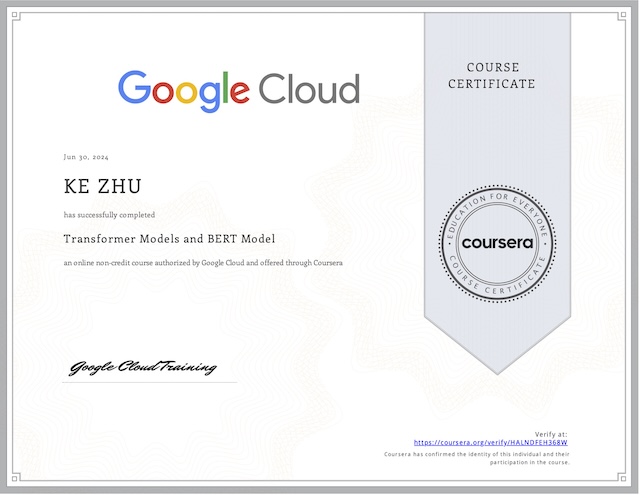What is SEO?
SEO stands for Search Engine Optimization, which is the practice of improving visibility of a website in search. SEO fits into a larger digital marketing strategy, it is more focused on free organic traffic. Other roles include:
- search engine marketing
- social media marketing
- content marketing
- public relations
SEOs want their page to show on the first page of search result. The goal is to show our website as high as possible for relevant keywords in organic results. How click on a result and visits to a website are dramatically affected by the position in search result. Even small position changes lead to increased traffic.
SEO as a Career
SEO is a career choice that continues to grow in marketing industry. It is a core skillset for marketer to have. SEO is a role that benefits in knowledge of complementary marketing disciplines, it also works well by complementing other roles. Skills needed are:
- Interpersonal skills
- Project management and planning
- Strategic thinking
- Being agile and proactive
- Stay updated on industry trends and news
- Ability to analyze data
How search engine works
Search engine creates programs on its robots / crawler / spiders, which in turn crawl the web to discover new Web pages and documents through links. Once a robot discovers a new page or site, it analyzed all of the content and data to determine what page is about and what topic should rank for. The site is then added to a massive database (index). Search engine can quickly reference the data when needed, and return the appropriate results to users’ search query.
When user performs a search query, the search engine look through their index database for pages they have crawled and analyzed. It then returns the results. SEO’s job is to understand what makes a website considered highly relevant for a search query.
Algorithms
All search engines share the same goal: to provide relevant info for a query from user. Each search query returns organic results and paid results. To be profitable and user-friendly, a search engine must provide a blend of organic and paid results. SEOs shall determine which algorithms check which factors in order to optimize a website to meet various criteria. Because algorithms are constantly evolving, it is very important to develop pro-active approaches.
Why algorithms evolve frequently is due to webmasters manipulating the algorithm to obtain a high rank for a page which is not relevant. Over-optimizing forces search engines to update algorithms, so over-optimizing is not a viable long-term strategy. Following best practice is always preferable:
- High quality content helps usability
- Homepage = authority = ranking
- Outside links increase authority
- Site must be visible in search
- Clear hierarchy
There are 3 major types of ranking factors:
- On-page factors – factors within a specific page of your site
- Off-site factors – incoming links, band mentions, etc
- Domain / site level factors
Algorithm Updates
Algorithms are constantly updated to weed out websites with no use value.
Algorithm update named “Panda” prevents low-quality sites from ranking highly. This update targets thin and low quality sites, which means the site has very few pages with useful or informative content to users. Another thing Panda will look for is duplicate content, which means duplicated within your own site or replicated from others. Basically to avoid being penalized by Panda, view your site as a user would view it.
Algorithm update named “Penguin” aims to stop spammy links. It really focuses on site that have a high amount of manipulative link building practices in place. Link building methods of the past are no longer valid and may incur penalty.
Algorithm update EAT and YMYL both together provide improved search experience. The factors relating to trust and authority become more important for all sites. These factors fall into 2 key categories: EAT (expertise, authoritativeness, trust) and YMYL (your money your life). The example sites which are affected by YMYL include: financial, medical, legal, official, any site allowing to pay bill or to make a transaction, etc. In the case your site fall into YMYL category, Google will evaluate your site using EAT score.
Featured Snippets are stuff Google displays at the very top of the organic search results (position zero). Rich results are different from other organic results, the former usually includes review starts, data and more. The mount of time people click over to your site is call CTR (click-through rate). Rich snippets will help you improve your CTR.
The core update BERT (Bidirectional Encoder Representations from Transformers, a neural network technique for language processing) has revolutionized the way Google understands the content of a website and ranks it for relevant search query. BERT helps understand human language better.
Topic Modeling and Association
SEO requires a more holistic approach with a knowledge of relevance signals. In the past, content writing was about balance between keyword density and relevant content. If certain keywords were not found, the site was considered not relevant, if certain keyword presented, the site would be ranked accordingly. Relevance used to be determined by keyword density.
But now a days, optimized content relates to overall page content, not keyword any more. Topic Modeling allows search engine to gauge relevance. Algorithms use Topic Association and semantic relationships between keywords allowing for better contents.
Google uses Topic Association to determine the relevancy and trustworthiness of content throughout the web. “Contextual meaning” is used to describe how a web site’s primary focus keywords and support keywords relate to each other and to the rest of the site’s content. Focus keyword can be broken up into synonyms and other elements. If a page is considered useful to readers, it should contain the words and phrases that support the overall topic. This also naturally incorporate a variety of “long-term” keywords, which are longer words or phrases difficult to predict but very targeted.
Branding
Brand is become more important to Google’s relevancy algorithm. Google believe users are familiar with these brands and thus slightly biased. Google favorites brands over relatively unknown sites. Entity association is trying to understand whether or not it can match a query to a specific individual or thing. Brands are more likely to have:
- a social presence
- contact information listed
- an established history
- a lot of traffic to be very brand-specific
- more mentions around the web
Branding and SEO are not mutually exclusive. In reality these are 2 powerful marketing tactics that work together to support your business. Offline effort will translate to online mentions, links and more.
Persona Development and SEO Strategy
Persona development is a common marketing tactic that creates a representation of your target user. That is the type of the user you want to attract to your website and complete a goal. A buyer persona is important for SEO, because it:
- helps better understand user’s needs and how they search the web
- allows you to create content around topics that match their intent
- is important in your initial keyword research and content strategy
The best place to start is from your existing user or customers. A full marketing persona will be completed with user profile, age, income, type of job and more. There are 2 major persona groups: potential buyers and existing customers. When you start developing marketing persona, you can use keyword research in 2 ways:
- use keywords that define user and build persona
- one persona is identified, use keywords to discover potential search queries
Once you got information about your audience, then you may create a personal to represent your ideal buyer. This persona is who you want to ultimately attract to your site. Feel free to create multiple persona to represent various buyers. After creating personas, next is to research and select final keywords.
My Certificate
For more on Google search engine optimization SEO, please refer to the wonderful course here https://www.coursera.org/learn/search-engine-optimization
I am Kesler Zhu, thank you for visiting my website. Check out all of my course reviews at https://KZHU.ai



